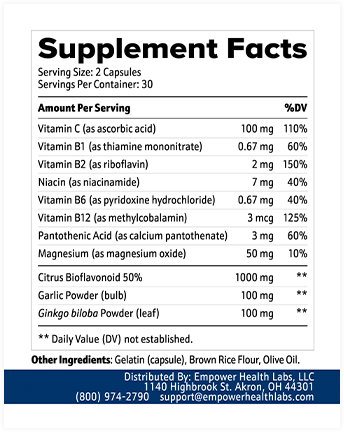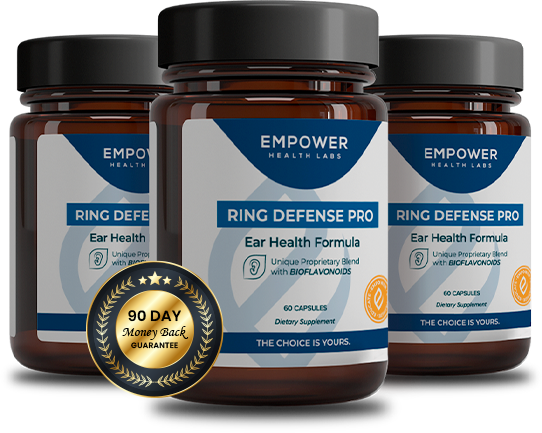

Ascorbic acid (AA) is widely distributed in the central nervous system and has been found to be involved in both physiological and pathological processes in the brain. AA was found to positively modulate inflamm‐aging and immunosenescence, two hallmarks of biological aging. AA treatment prior to noise exposure had also been shown to play a protective role for auditory function. Because aging and noise exposure are both probable factors for tinnitus, AA may also play an important role during the development of tinnitus. https://www.ncbi.nlm.nih.gov/pmc/articles/PMC7331419/
Ascorbic acid treatment inhibited both lipid peroxidation and oxidative damage of proteins in rabbits exposed to noise. The study data suggest, at least, that oxidative status should be included in the physiopathology of noise-induced hearing loss; in addition, a brief application of ascorbic acid before noise exposure appeared to play a protective role for cochlea. https://pubmed.ncbi.nlm.nih.gov/15454771/
Clinical observations have implied a central origin for tinnitus and potential therapeutic effects of ascorbic acid (AA); however, the detailed mechanisms remain undetermined. https://pubmed.ncbi.nlm.nih.gov/32851309/
The therapeutic efficacy of a regimen consisting of intravenous injection of Cardiocrome, containing cytochrome c, flavin mononucleotide and thiamine diphosphate for mitochondrial encephalomyopathy (MEM) was examined…Clinical improvement was obtained in eight of the patients. Improvement was observed in the muscle symptoms of easy fatigability, motor disability and severity of stroke-like episodes, as well as in various other symptoms such as phosphate, tinnitus, headache, corneal edema, chilblains, thalamic pain, respiratory failure, and nystagmus. https://pubmed.ncbi.nlm.nih.gov/9187476/
Thiamine is a crucial cofactor involved in the maintenance of carbohydrate metabolism and participates in multiple cellular metabolic processes within the cytosol, mitochondria, and peroxisomes. Currently, four genetic defects have been described causing impairment of thiamine transport and metabolism: SLC19A2 dysfunction leads to diabetes mellitus, megaloblastic anemia and sensory-neural hearing loss… https://pubmed.ncbi.nlm.nih.gov/31095747/
Neonatal thiamine deficiency can cause auditory neuropathy in humans. To probe the underlying cochlear pathology, mice were maintained on a thiamine-free or low-thiamine diet during fetal development or early postnatal life…We conclude that the auditory neuropathy from thiamine deprivation could be produced by loss of inner hair cell synapses. https://pubmed.ncbi.nlm.nih.gov/26944177/
Reduced intake of vitamin B2 and B3, water, and protein may be associated with tinnitus and tinnitus-related annoyance, and further studies regarding the importance of adequate nutritional intake in the tinnitus management need to be performed. https://pubmed.ncbi.nlm.nih.gov/29433160/
Higher intake groups of riboflavin, niacin and retinol was inversely associated with ARHL (age-related hearing loss) prevalence…Our findings suggest the recommended intake levels of riboflavin, niacin, and retinol may help reduce ARHL in the elderly. https://www.ncbi.nlm.nih.gov/pmc/articles/PMC6520829/
Reduced intake of vitamin B2 and B3, water, and protein may be associated with tinnitus and tinnitus-related annoyance, and further studies regarding the importance of adequate nutritional intake in the tinnitus management need to be performed. https://pubmed.ncbi.nlm.nih.gov/29433160/
Higher intake groups of riboflavin, niacin and retinol was inversely associated with ARHL (age-related hearing loss) prevalence…Our findings suggest the recommended intake levels of riboflavin, niacin, and retinol may help reduce ARHL in the elderly. https://www.ncbi.nlm.nih.gov/pmc/articles/PMC6520829/
To assess the effectiveness of a food supplement (Tinnitan Duo®) containing 5-hydroxytryptophan, Ginkgo biloba, magnesium, melatonin, vitamin B5 and B6, and zinc at improving tinnitus response and intensity. The Tinnitus Handicap Inventory (THI) total score was significantly reduced after 3 months of treatment in the per-protocol…Perceived tinnitus loudness significantly decreased after 3 months of treatment (p = 0.001). This new food supplement was associated with an improved tinnitus-related emotional affectation and with a good safety profile. https://pubmed.ncbi.nlm.nih.gov/34219601/
In our earlier study we conducted a randomized, placebo-controlled, triple blind trial, and showed that pyridoxine treatment of pervasive developmental disorders with expressive verbal disorders and hypersensitivity to sound as significantly effective in improving VIQ scores…An analysis of the reports of their daily life provided by their parents and teachers showed that the children's hypersensitivity to sound was also improved…Our results indicate there are PDD subgroups whose expressive language capabilities and hypersensitivity to sound can be improved by pyridoxine treatment. https://pubmed.ncbi.nlm.nih.gov/16859191/
A paired t-test showed that in Group A, patients with Vitamin B12 deficiency showed significant improvement in mean tinnitus severity index score and visual analog scale (VAS) after Vitamin B12 therapy. This pilot study highlights the significant prevalence of Vitamin B12 deficiency in North Indian population and improvement in tinnitus severity scores and VAS in cobalamin-deficient patients receiving intramuscular Vitamin B12 weekly for 6 weeks further provides a link between cobalamin deficiency and tinnitus thereby suggestive of a therapeutic role of B12 in cobalamin-deficient patients of tinnitus. https://www.ncbi.nlm.nih.gov/pmc/articles/PMC4918681/
Low plasma melatonin and vitamin B12 have significant correlation with the development of subjective idiopathic tinnitus among the elderly. This finding suggests the need for the trial of correction of these markers in the reversal or control of tinnitus. https://www.ncbi.nlm.nih.gov/pmc/articles/PMC3645155/
To assess the effectiveness of a food supplement (Tinnitan Duo®) containing 5-hydroxytryptophan, Ginkgo biloba, magnesium, melatonin, vitamin B5 and B6, and zinc at improving tinnitus response and intensity. The Tinnitus Handicap Inventory (THI) total score was significantly reduced after 3 months of treatment in the per-protocol…Perceived tinnitus loudness significantly decreased after 3 months of treatment (p = 0.001). This new food supplement was associated with an improved tinnitus-related emotional affectation and with a good safety profile. https://pubmed.ncbi.nlm.nih.gov/34219601/
We have observed that pantothenic acid (PA) prevents deafness induced by cisplatin (CP) in the guinea pig if both drugs are administered jointly. When deafness was previously produced, recovery was sometimes obtained after the administration of PA; so, we studied the effects of PA on cisplatian-induced ototoxia in guinea pigs, both as a prophylactic agent in healthy animals, and as a therapeutic agent in animals previously made deaf by the drug. https://pubmed.ncbi.nlm.nih.gov/8725528/
The efficacy of magnesium, administered either to prevent or to treat hearing damage, has been demonstrated in several studies in animals and in humans, particularly in noise-induced hearing loss. The exact mechanism by which Mg2+ acts is not fully known. Different hypotheses exist including calcium antagonism, vasodilatation, antioxidant and anti-NMDA properties. Because it is a relatively safe and well-known treatment, magnesium therapy, alone or in association, could be of a great interest to improve auditory recovery. https://www.ncbi.nlm.nih.gov/books/NBK507266/
The serum magnesium concentration was significantly lower in the study group compared to the control group (1.8±0.2 vs. 2.3±0.4 mg/dL, p=0.03)…The significant association between serum magnesium level and tinnitus shows the importance of magnesium in the pathophysiology of subjective tinnitus. https://pubmed.ncbi.nlm.nih.gov/27405078/
In a preliminary paper on the use of lemon bioflavonoid complex in the treatment of various types of sensori-neural hearing loss, we stated that for a number of reasons, therein given, it was decided to assess the therapeutic effect of this medicament combined with ascorbic acid and certain components of the vitamin-B complex in relation to its effect or lack of effect on hearing loss. https://journals.sagepub.com/doi/abs/10.1177/000348946307200421
76.8% of ENTs (ear-nose-throat specialists) reported use of supplements for tinnitus patients, with 72.9% of that subset recommending Lipo-Flavonoid®. These data are impactful because reported treatment with Lipo-Flavonoid® was 43.7 percentage points more than the next most recommended therapy. 44.4% of ENTs noted that it was the most effective overall treatment option for treating ringing in the ears (34 percentage points greater than the next most selected treatment). Of all OTC treatment choices, 62.4% of respondents reported that Lipo-Flavonoid® was the most effective (42 percentage points more than the next most selected treatment). https://lipoflavonoid.com/wp-content/uploads/2019/08/Prevalance-of-Chronic-Tinnitus_2019_080619.pdf
Otikon, an ear drop formulation of naturopathic origin (containing Allium sativum, Verbascum thapsus, Calendula flores, and Hypericum perforatum in olive oil), is as effective as Anaesthetic ear drops and was proven appropriate for the management of AOM-associated ear pain. https://jamanetwork.com/journals/jamapediatrics/fullarticle/190792
Garlic with its intrinsic antioxidant activity may prove beneficial in prevention from ototoxicity. S-allylmercaptocysteine (SAMC), diallyl disulfide (DD), and S-allylcysteine (SAC) are three active compounds found in garlic. In this study, we investigated the effect of SAMC, DD, and SAC on the ototoxicity induced by gentamicin in rats, by using brainstem evoked response audiometry (BERA)...SAMC, DD, and SAC are derivative of garlic seems to attenuate aminoglycoside-induced hearing loss. The effect of SAMC and DD seems to be more prominent than that of SAC. https://www.ncbi.nlm.nih.gov/pmc/articles/PMC5115152/
Allicin, the main biologically active compound derived from garlic, has been shown to exert various anti-apoptotic and anti-oxidative activities in vitro and in vivo studies. We took advantage of C57 mice intraperitoneally injected with cisplatin alone or with cisplatin and allicin combined, to investigate whether allicin plays a protective role in vivo against cisplatin ototoxicity. The result showed that C57 mice in cisplatin group exhibited increased shift in auditory brainstem response, whereas the auditory fuction of mice in allicin + cisplatin group was protected in most frequencies, which was accordance with observed damages of outer hair cells (OHCs) and spiral ganglion neurons (SGNs) in the cochlea. https://pubmed.ncbi.nlm.nih.gov/28062185/
All eight randomized, placebo-controlled trials of the standardized Ginkgo biloba extract EGb 761® showed statistically significant superiority of the active treatment over placebo. This holds for change in tinnitus volume/intensity (assessed and significant in three studies) as well as for overall severity (assessed in six, significant in five studies). Hence, there is evidence of efficacy for this specific preparation in patients with tinnitus as a single or major complaint, as well as in subjects suffering from tinnitus associated with dementia or aging-related cognitive impairment. https://www.ncbi.nlm.nih.gov/pmc/articles/PMC3157487/
Ginkgo biloba extract EGb 761® and pentoxifylline were similarly effective in reducing the loudness and annoyance of tinnitus as well as overall suffering of the patients. The incidence of adverse events was lower in the EGb 761® group. https://pubmed.ncbi.nlm.nih.gov/29855986/
